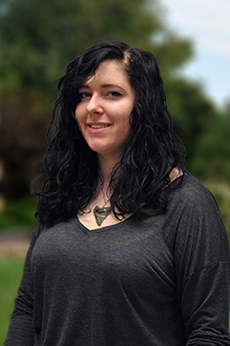Ancient Studies
“Roman Coins in the Second and Third Century AD and their Role in Immortalizing Emperors”

This research studies Roman coins from the second and third centuries CE and their use as a means of communication for Rome’s emperors. In a time where the spread of literature was limited and the empire vast, coinage was the only medium that reached everyone under Rome’s influence. How did the coins’ imagery change as the 3rd century brought shorter reigns and restricted resources? What messages were the emperors attempting to convey to the people throughout this turbulent century? This study explores the currency’s changing strategies of communication from the second to the third century. Along with transforming imagery, this study will investigate how the physical characteristics of the coins – the amount of silver, the weight, the level of wear and use – all contribute to the emperors’ strategies of communication throughout the period. By examining the imagery of coins based on category (tradition, military problems, dynastic emphasis, personal preferences, disasters, and civic prosperity), one can begin to identify trendks and their correspondence to contemporary events. This research will explore how as their propaganda evolved, so did the physical aspects, affecting the public reception of the coins.
Who is your mentor for your research project? How did you arrange to work with this person?
My mentor for this research project is Dr. Melissa Bailey of the Ancient Studies department. As she specializes in roman archaeology, particularly in the late empire my project covers, I asked her to be my mentor.
How did you know this was the project you wanted to do?
The previous summer I was offered a student placement at the Roman Baths in the UK. During my placement I primarily participated in cataloging the Beau Street Hoard, a massive roman coin hoard discovered recently nearby the Baths. Upon returning to UMBC, I began an initial paper on the third century CE coins of the hoard and how their images pertained to the contemporary emperors. This research was so interesting that I wanted to expand its coverage to also compare to the second century CE.
How did you hear about the Undergraduate Research Award (URA) program?
All of my professors and advisors, from Ancient Studies (ANCS), Honors College, and Humanities Scholars, have always sent out emails letting their students know about the URA program. Also, though we are few, the Ancient Studies majors are very active and there is always at least one of us completing a URA every year. Because of this, my peers’ success encouraged me to take the plunge and submit my application.
How much did your mentor help you with the application?
Dr. Bailey was my proofreader and also offered suggestions to make my proposal more legible to the public.
What has been the hardest part about your research?
Honestly, the hardest part about all this is containing my thesis to a narrow focus. As my research grows, so does the network of digressing yet interesting anecdotes on Roman life and culture I discover. Often I find myself writing pages of material that, while perfectly interesting and fairly relevant, dilute my thesis so much I have to remove an hours’ worth of work.
What else are you involved in on campus?
I work as a student assistant at AOK’s Special Collections, and am also a Designer for UMBC’s Student Events Board.
What is your advice to other students about getting involved in research?
If there is something you are interested in, there is a research project waiting to happen. I was very daunted by the name “research project” but eventually it turned out to be an excuse to sit in the library and read scandalous stories about the Roman emperors. That’s not to say it will be a walk in the park – many times I see coins whenever I close my eyes and decide a day of Netflix is better than looking at any more of these cursed artifacts. However, when I keep my research schedule at a moderate rate, I keep coming back to this project with interest and enjoyment.
What are your career goals?
My current career goal is to become a museum curator, preferably specializing in an ancient roman field.